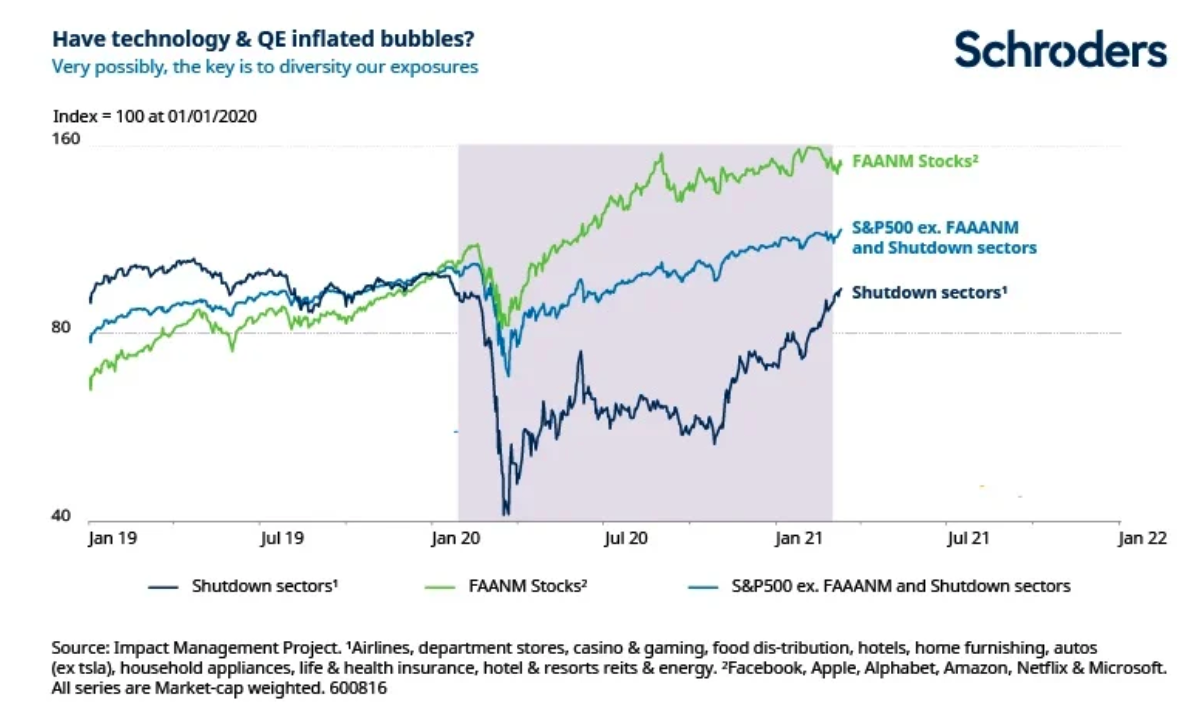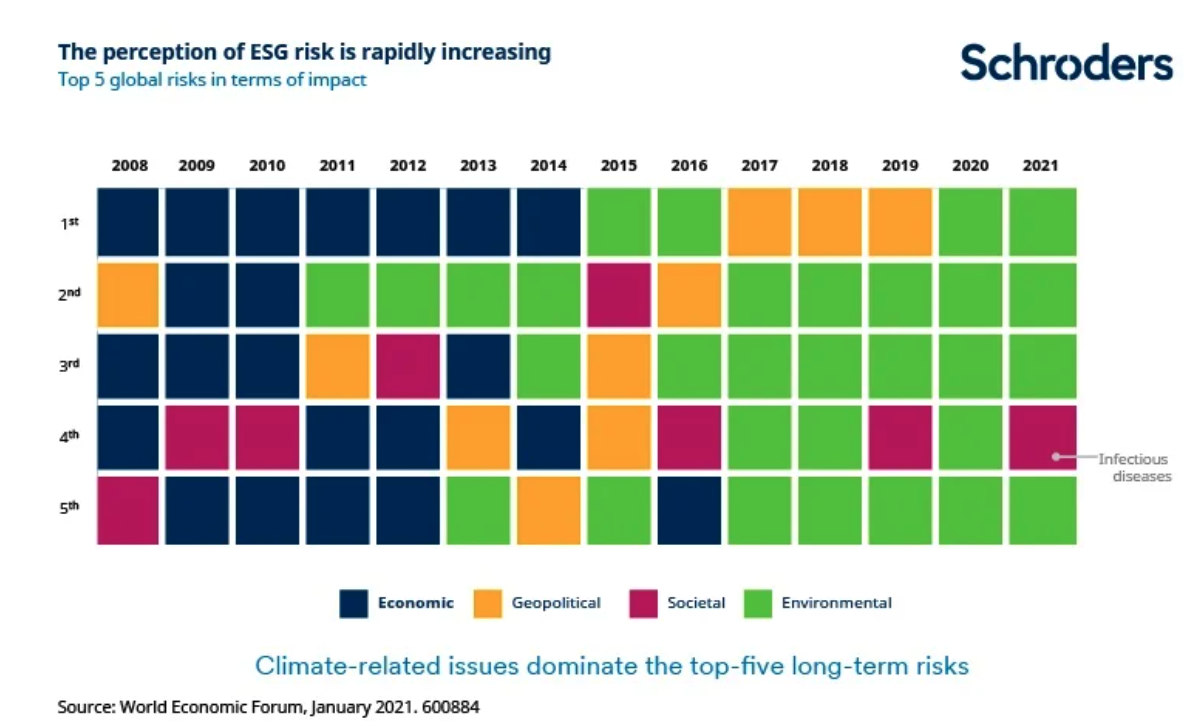Seven tips on selecting assets for your portfolio
What have we learned over the past seven decades in multi-asset, and how does it relate to what we can expect in the future?
A lot has changed in financial markets over the last 73 years since Schroders launched its first balanced mandate. But there are several lessons we can take from past experience that could be helpful in navigating the future.
1. Diversification still matters
Looking back, history suggests that during periods of low and stable inflation, a negative correlation between equities and bonds exists. The resulting low and relatively stable interest rates have amplified the diversifying role of bonds in a portfolio.
However, in a world in which inflation comes back, this role may be challenged. When inflation is high, history suggests there’s a positive correlation between equities and bonds. In this environment, bonds may struggle to as effective diversifiers. Investors will therefore need to think harder about how to go about creating a diversified portfolio – they can no longer rely on bonds to diversify equity risk
2. Flexibility in asset allocation still matters too
Our analysis suggests that during an economic recession or recovery, the dispersion of returns from various asset classes increases and asset allocation matters more than stock selection does. Meanwhile, when an economy is in its expansion phase, history tells us that stock selection contributes more to returns than asset allocation.
This is why we believe there’s merit in being flexible with one’s investment strategy, varying asset allocation throughout the economic cycle.
3. Monetary support is likely to give way to fiscal support.
Liquidity has been a major driver of financial market returns, especially over the last 10 years. Prior to the last crisis (the global financial crisis of 2007-2009), the US Federal Reserve’s balance sheet was fairly stable, but in 2008 it started pumping liquidity into the financial system in order to rebuild banks’ balance sheets. This fed through into financial markets, but not into the real economy.
This time around, with monetary policy accommodative in most of the world, the baton has passed to fiscal policy to support ailing economies. We’re likely to see this transition from monetary expansion to fiscal support play out over the next five years.
4. This could lead to inflation further out (although it’s too early to tell)
The combination of monetary and fiscal stimulus could create inflation. But inflation is notoriously complicated to predict.
With generous fiscal measures directed at consumers rather than the financial system, we could see inflationary risks increase in the developed world. Especially as this money feeds through to significant consumer spending over the next few years.
But it’s too early to predict whether this will happen with any certainty.
Pre-Covid, the prevailing view was that the global economy was facing secular stagnation. In other words, poor growth and low inflation as demographics and a technological revolution conspired to structurally depress economic and price growth.
These structural forces still exist. The combination of these and the transition to huge fiscal support means that the upside risk to inflation appears more balanced, in my view.
5. Regulation and cost pressure is here to stay
Regulation and cost pressure have characterised the asset management industry over the past decade or so and they’re not going anywhere anytime soon.
One aspect of this is the debate about active versus passive management.
However, the debate misses the point that there’s space for both active and passive in a portfolio. They are not mutually exclusive, so you don’t have to pick one over the other. There’s a very strong case for using a blend of active and passive.
A passive approach is very effective in providing access to efficient markets such as those in the US, while active managers can add value particularly in inefficient markets like emerging markets, credit or distressed debt.
6. We may be in bubble territory, so diversify your exposure
There’s also no clear-cut answer to the question of whether technological advancement and quantitative easing have inflated markets to bubble territory. In my experience, identifying bubbles in stock markets is only possible with the benefit of hindsight. A stock market bubble happens when stock prices inflate significantly and no longer reflect what the company is really worth. At some point, bubbles burst.
That said, I do believe we could very well be in a bubble, but it is localised in certain areas of US technology stocks. These have been beneficiaries of significant investment but trade at excessive and unsustainable multiples. To my mind, the bubble is not so much in the large-cap technology stocks, the FAAANM (Facebook, Apple, Alphabet, Amazon, Netflix and Microsoft ) stocks of this world. While they do trade on expensive valuations, they also have a long history of producing very strong margins year after year.
Rather, I think the bubble could be in the second-tier tech stocks which are trading at lofty valuations and whose revenue projections are overambitious.
If we strip out technology and the stocks that have been worst hit by global economic shutdowns as per the below chart, we can see that valuations (represented by the middle green line) are not excessive. Looking at the sectors that did badly last year because of the pandemic and because they didn’t participate in the rally we’ve seen since November 2020 – often called “shutdown sectors” as shown in the dark blue line on the bottom – valuations are still very much acceptable.

A way to navigate through what may well turn out to be a bubble is to diversify your exposure and cast your investing net as wide as possible.
7. Sustainability will only grow in importance
As investors, we will have to tackle important issues like stakeholder management and how we navigate the transition towards a low carbon economy.
The below chart shows how people around the world are increasingly becoming aware of ESG risks. It comes from the World Economic Forum and shows how since the financial crisis 14 years or so ago, the top five long-term risks facing society have evolved from being economic in nature to nearly exclusively environmental.

It’s very clear to me from my conversations with
clients that people are taking more active steps to move towards more
sustainable investment approaches. It’s equally clear to me that the scale of
the problem we face is immense and that it will have profound implications for
how we allocate capital in the years to come.
Stay up to date with all our latest news
Hit the 'follow' button below and you'll be notified every time we post content on Livewire. To learn more about our capabilities, please visit our website.
1 topic

